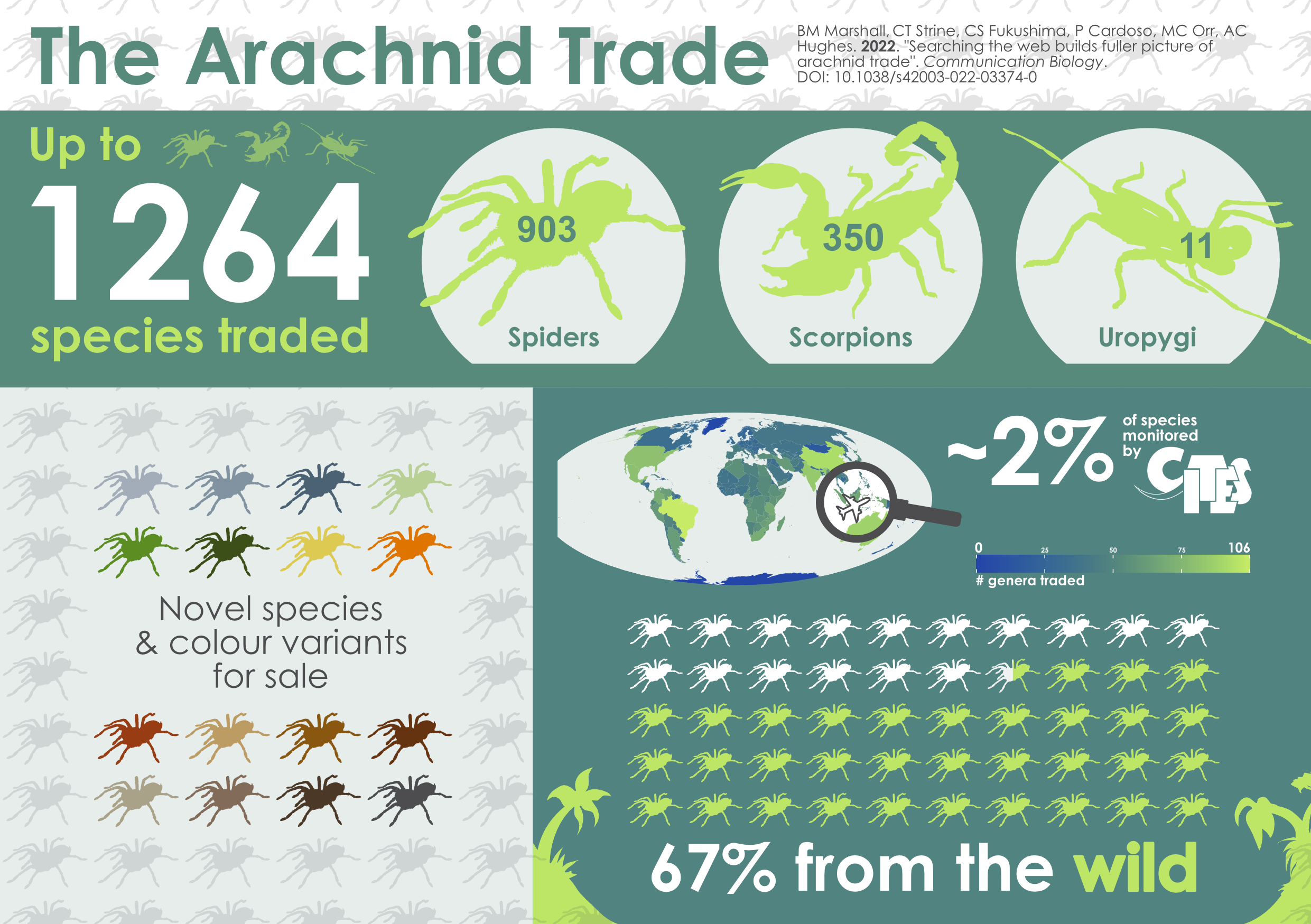People are selling a lot of spiders - and no one is keeping track
Experts worry that unregulated trade in arachnids could be a threat to rare or imperilled species
Your support helps us to tell the story
From reproductive rights to climate change to Big Tech, The Independent is on the ground when the story is developing. Whether it's investigating the financials of Elon Musk's pro-Trump PAC or producing our latest documentary, 'The A Word', which shines a light on the American women fighting for reproductive rights, we know how important it is to parse out the facts from the messaging.
At such a critical moment in US history, we need reporters on the ground. Your donation allows us to keep sending journalists to speak to both sides of the story.
The Independent is trusted by Americans across the entire political spectrum. And unlike many other quality news outlets, we choose not to lock Americans out of our reporting and analysis with paywalls. We believe quality journalism should be available to everyone, paid for by those who can afford it.
Your support makes all the difference.The world is awash in a global network of people buying and selling spiders and scorpions with very little regulation or monitoring, a new study has found.
Researchers documented thousands of species of arachnids being sold on websites all over the planet, with many likely caught in the wild.

The vast majority of these species are also overlooked by any international regulations on wildlife trade like the Convention on International Trade in Endangered Species of Wild Fauna and Flora (CITES).
These findings reveal a major blind spot in the global wildlife trade — and highlight the need to get more data on the conservation status of these animals to prevent them from going extinct due to overharvesting.
“The idea of sustainable trades as a concept is kind of laughable without better data,” Benjamin Marshall, a PhD researcher in Biology at the University of Stirling, told The Independent.
Mr Marshall and colleagues had previously looked at the global reptile trade and says arachnids — a group of animals including spiders, scorpions, mites and other mostly eight-legged creatures — felt like a good next step.
“The arachnid stuff was: Okay, what’s another group of species that are frequently ignored?” he says.
The team started gathering data on arachnid trade, combing through the internet to look at what was being offered for sale in nine different languages.
They searched for the scientific names of over 52,000 different species on 103 websites and found a ton of different species up for sale — 1,264 to be exact, from jumping spiders to burrowing scorpions to a whole other group named “whip scorpions.”
Some of those groups were well-represented on these websites, too — more than half of all known tarantula species were found available for sale, for example.
But of those hundreds of species available for sale, very few of them have their trade regulated at all. Only 29 of the species found are covered by CITES, a global treaty that polices wildlife trade. And only 251 were found in a database from the US Fish and Wildlife Service tracking the wildlife trade.

The researchers noted that millions of individual animals were being bought and sold, with many likely coming directly from the wild.
These results point to a vast, mostly unregulated market of spiders and scorpions — and it may just be the tip of the iceberg.
Some of the species they found for sale could have been mislabelled, Mr Marshall notes, or even undescribed species being marketed as something else. John Losey, an entomologist at Cornell University, told The Independent that many species may also be sold under common names instead of scientific names, or even misspelled names.
Dr Losey and his colleagues published a similar study earlier this year, finding that some regulated, threatened and protected insects and spiders were available for sale online. He said the new paper was “excellent” and that the findings were important to show how little we know about the arachnid trade.
Other wildlife trade, especially in larger animals, is closely followed and regulated by governments around the world. Ivory, for example, is extremely carefully monitored to stop elephant poaching for their tusks.
But while spiders, scorpions and other skittering critters are not as big as an elephant, they’re no less important. Insects and arachnids are vital to human life, Dr Losey notes, from pollination to decomposing dead plants and animals.
“If insects disappeared, we humans couldn’t survive very long without them,” he says.
To protect these creatures from any potential threat, we need to know how each species are faring in the wild — and how something like the wildlife trade might affect them, Dr Losey adds.
These findings may also want to give some spider enthusiasts pause next time they go looking for a new friend.
“I think there is an assumption, if you’re buying a pet, that it’s come from captivity,” Mr Marshall says. And if it’s caught from the wild, that collection might be a threat to the species, he notes.
But the real problem, Mr Marshall says, is that we don’t have enough information on arachnid populations or this global network of trade to know how big a problem it might really be.




Join our commenting forum
Join thought-provoking conversations, follow other Independent readers and see their replies
Comments